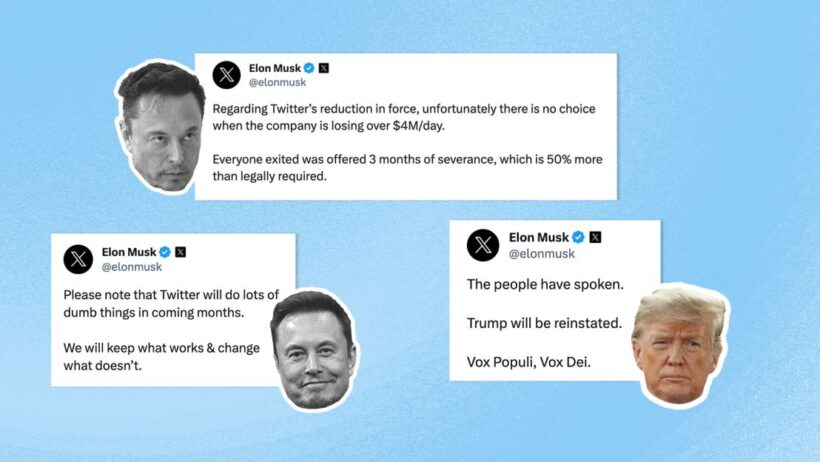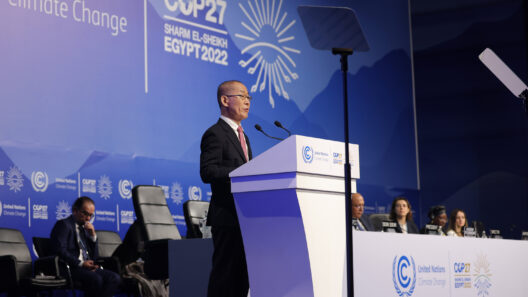Elon Musk, a figure synonymous with innovation and audacity, has consistently fueled discourse surrounding climate change through his ventures and public proclamations. From his electric vehicles to solar energy initiatives, his contributions ostensibly position him as a champion of environmental stewardship. However, a critical examination reveals a complex tapestry of achievements and setbacks that exemplify both promise and controversy in the battle against climate change.
Initially, Musk’s entry into the arena of sustainability began with Tesla, a company that has fundamentally reshaped perceptions of electric vehicles (EVs). By popularizing EVs, Tesla has mirrored a seismic shift in automotive preferences from fossil fuel reliance to cleaner alternatives. The range and performance of Tesla models have challenged the notion that electric mobility is inferior to traditional vehicles. Notably, Tesla’s gigafactories, designed to produce battery cells at scale, underscore Musk’s commitment to mass-producing clean energy solutions.
However, the environmental ramifications of battery manufacturing cannot be overlooked. The extraction of lithium, cobalt, and nickel—the critical components in lithium-ion batteries—often inflicts significant ecological damage. Water pollution, habitat destruction, and labor exploitation in mining operations pose considerable ethical dilemmas. While Musk advocates for sustainability, the realignment of the automotive industry may inadvertently perpetuate other forms of environmental degradation. The question arises: can the transition to electric vehicles remain truly sustainable if it engenders new challenges?
Moreover, Musk’s endeavors in solar energy through SolarCity, which Tesla acquired, epitomize a broader vision of renewable energy adoption. Solar panels and solar roof tiles offer tangible solutions for domestic energy needs, promoting self-sufficiency and reduced dependence on fossil fuels. Musk has passionately articulated a future where solar energy, paired with battery storage, can fulfill a significant portion of humanity’s energy requirements without compromising ecological integrity.
Despite these advancements, critics point to the market dynamics surrounding renewable energy. The accessibility of Tesla’s solar products often reflects a financial barrier that sidelines lower-income populations, thus perpetuating environmental inequalities. The urgency of climate change demands collective action, yet innovation within capitalistic frameworks frequently marginalizes those who need sustainable solutions most desperately. Understanding these sociopolitical ramifications is pivotal in assessing Musk’s overall impact on climate change.
In concert with Tesla and SolarCity, Elon Musk’s venture into SpaceX presents an ambivalent perspective on environmental stewardship. While the notion of interplanetary colonization ignites fascination, the environmental implications of space exploration cannot be ignored. Rocket launches produce greenhouse gas emissions and contribute to atmospheric pollutants. Furthermore, the resource consumption associated with space travel raises ethical questions about prioritizing earthly challenges over celestial ambitions. Does the pursuit of Martian habitation detract from immediate and pressing needs to mitigate climate change on Earth?
The dichotomy of Musk’s actions—a proponent of renewable energy juxtaposed against the backdrop of popular culture’s fascination with space exploration—provokes profound contemplation. It illustrates the delicate balance between ambition and responsibility. As humanity stands at the crossroads of a climate crisis, apocalyptic scenarios often ignite public interest, yet the solutions must be rooted firmly on our home planet.
Another essential dimension of Musk’s environmental footprint lies in his advocacy for artificial intelligence and its potential applications in sustainability. Automated systems can optimize energy consumption, streamline production processes, and enhance research in climate science. By harnessing AI, industries may identify innovative solutions that were previously unconsidered. However, Musk himself has exhibited ambivalence toward AI, warning of its existential risks while simultaneously seeking to exploit its capabilities. This contradictory stance necessitates scrutiny as society navigates the intersection of technological advancements and ecological integrity.
To further unravel the complexities surrounding Musk’s contributions, the discourse must also consider his role in public persuasion. By leveraging his platform, Musk has been exceptionally influential in shaping societal narratives about climate change and sustainability. He has an unparalleled ability to galvanize public interest and inspire action. His philanthropic initiatives, although often critiqued for their scope and reach, signal a willingness to invest in groundbreaking research and development. However, the question lingers: Is this genuine altruism, or a calculated strategy to enhance personal and corporate branding?
Perhaps the most glaring oversight in the evaluation of Musk’s legacy is the tendency to romanticize individual effort in tackling climate change. It is essential to recognize that the fight against climate change operates within a larger systemic context. Although Musk’s contributions signify notable advancements, they do not absolve him—or the corporations he represents—of accountability. Environmental sustainability requires not only technological innovation but also systemic changes in policies and societal norms to facilitate meaningful progress.
Ultimately, the narrative of “Elon Musk vs. Climate Change” serves as a microcosm of the broader dialogue regarding technological solutions, environmental ethics, and societal responsibility. As the world grapples with the inertia of climate crisis, the precedence of Musk’s actions reminds us that the journey toward sustainability is multifaceted. Reflection on Musk’s decisions illuminates the intricate interplay between ambition and consequence, innovation and responsibility. As society continues to traverse this tumultuous path, curiosity should be piqued not merely toward technological advancements but also toward equitable practices that promote a sustainable future for all.








